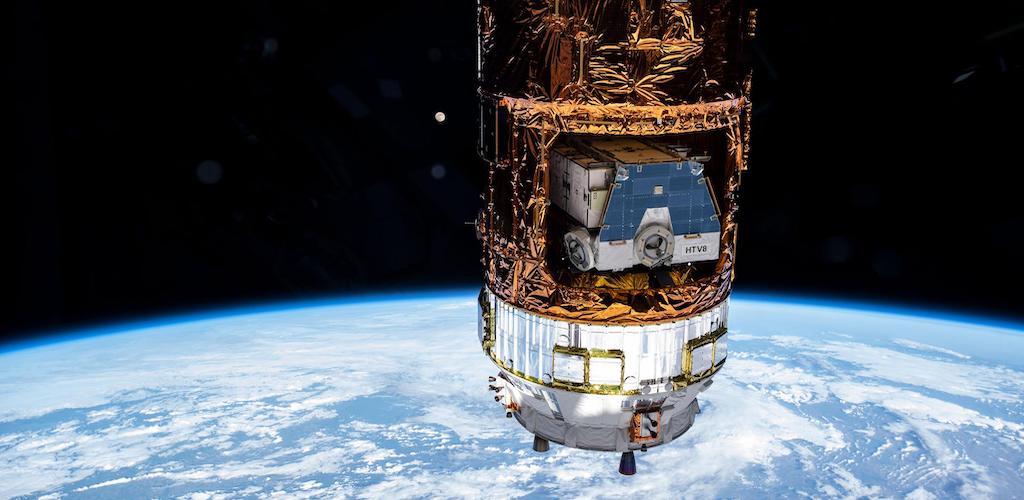Jul 01 | 2021
(Global) Battery Development Reshaping Sector

By Malcolm Ramsay
The influx of billions of dollars of private equity into the space sector over the next decade is expected to transform the future of space flight, with many new opportunities emerging for project transport.
Typically, the preserve of government organizations, the arrival of high-profile investors such as Elon Musk and Jeff Bezos with commercial firms SpaceX and Blue Origin, has upturned the industry as the race for space heats up.
One of the driving factors for this change has been the rapid advancement in battery technology over the last 10 years, which has allowed a range of new applications and opened new opportunities.
“The greatest challenge ahead for space-related cargoes is navigating and maintaining compliance with frequently updated lithium battery regulations. International transportation agencies regularly update lithium battery regulations to keep pace with increased usage and shipments of batteries,” Ben Martin, logistics manager at U.S.-based Spaceflight, told Breakbulk.
Battery Regulation
Improvements in battery capacity, driven largely by the electric vehicle and energy storage sectors, has allowed firms to pack more power into a smaller footprint, reducing the cost of production and the size of many cargoes.
While this has meant that many cargoes can now technically be shipped by container, the complexity and sensitivities of cargoes means that in most cases breakbulk specialism is required for handling.
“Traditionally, satellites have been large and heavy, and required project cargo-like planning and execution. Today, satellites are small and light. They can use common freight networks instead of air charters and dedicated heavy-haul trucks. Nonetheless, satellites are difficult to transport due to the inclusion of lithium ion batteries to power the satellite. Additionally, many countries classify satellites as technologically sensitive and require a license to export the hardware. Proper planning is required to ensure smooth and safe transport on time and within budget,” Martin said. (Watch Spaceflight's Ben Martin, Tremendous Opportunity for Handling Space Cargo, from Breakbulk Americas 2020 Digital Preview)
In contrast with the earliest space flights, which were largely based on mechanical operation, nearly every aspect of modern payloads is powered electrically, requiring custom configurations and often resulting in bespoke logistics paperwork.
“Not all sections of the lithium battery regulations apply to every shipment of batteries. The regulations are very specific and each spacecraft (and the configuration of the battery contained in it) is different. Spaceflight spends considerable time understanding the regulations. After determining that many of its customers share a common lithium ion battery attribute and evaluating it against the regulations, Spaceflight procured and tested a shipping container that allows it to ship without the intervention of the U.S. DOT. Previously, it had to obtain approval from the U.S. DOT prior to transport. Applying the correct portions of the regulations is key to continued success for both Spaceflight and its customers,” Martin added.
The proliferation of private companies into the space industry over the last decade has led to a dramatic lowering of per-unit prices and increased pace of growth, but also creates the potential for future congestion and logistics challenges as competition increases. Consultancy Fortune Business Insights predicts that the global space launch services market size will deliver a compound annual growth rate of 13.35 percent, reaching US$26.16 billion by 2027.
“The volume of space-related cargo is a fraction of other common commodities that drive freight capacity trends. It is unlikely that satellite shipments will influence capacity discussions or create congestion. They are not immune, however, to global freight capacity, like the reduced air freight capacity in 2020 and the ongoing issues in ocean transport,” Martin said.
Global Supply Chain
Earlier this month, the Indian government prepared the way for private companies to establish and operate rocket launch sites. The draft National Space Transportation Policy-2020 allows for private firms to operate both inside and outside the country, marking a huge step forward toward a breakbulk supply chain in the world’s seventh-largest country.
"The Draft National Space Transportation Policy-2020 is comprehensive covering all aspects of rocket launching, launchpads, re-entry of a space object and others," said Srinath Ravichandran, CEO of Agnikul Cosmos.
Previous regulation in India made it all but impossible for private firms to gain licenses and scale, but the new draft policy promises to make it easier to gain authorisation from the Indian National Space Promotion & Authorization Center (IN-SPACe). While Martin of Spaceflight noted that "most launch service providers are based in the U.S., the sector is steadily changing with countries around the world increasingly opening up the tightly regulated industry.
In Germany earlier this year, a consortium of engineering firms announced plans for an offshore spaceport utilizing heavy-load carrying vessels and new infrastructure at the port of Bremerahven. Capitalizing on the trend for smaller payloads, the proposed German Offshore Spaceport Alliance, or GOSA, includes breakbulk shipping firm Harren & Partners as one of its partners and plans to deploy its heavy-load carrier vessel Combi Dock I as the first launch site for the project.
Located on the north coast of Germany between Bremen and Hamburg, the port is home to one of the largest terminal for general and heavy-lift cargo in Europe. The Neustädter Hafen logistics center on the left bank of the River Weser specializes in handling breakbulk cargo and may soon develop a new rocket and satellite production facility.
“Spaceflight manifests rideshare launch services with numerous land-based launch service providers around the world. If offshore launch becomes part of its launch portfolio, Spaceflight Logistics will work with its customers and logistics partners to determine the best transportation solution that’s safe, cost-effective, and complies with local and international laws and regulations,” Martin said.
Subscribe to BreakbulkONE and receive more industry stories and updates around impact of COVID-19.

